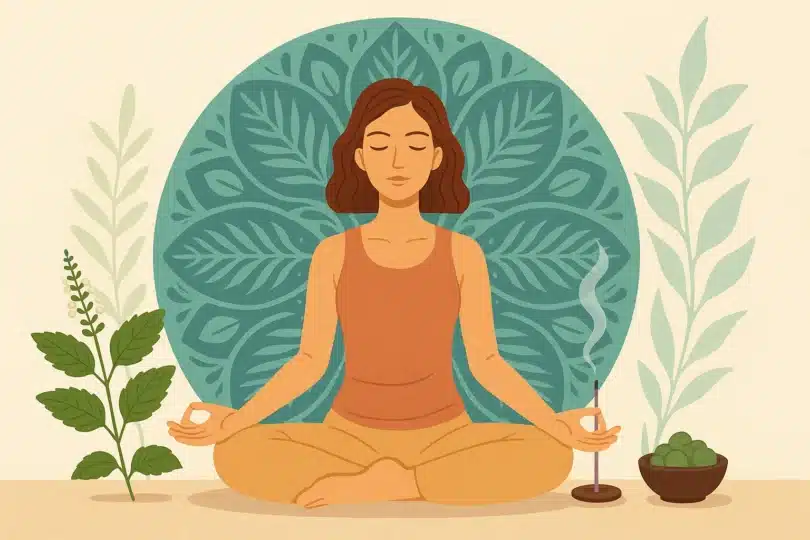Stress is not just a mental state—it is a whole-body response that affects hormones, immunity, digestion, and sleep. In 2025, more people are looking for integrative solutions that go beyond a single pill or supplement. A truly effective approach to stress management combines the wisdom of mindfulness practices, the simplicity of breathing techniques, and the targeted support of natural remedies. Together, these tools provide a sustainable way to calm the nervous system, lower cortisol, and restore balance in daily life.
The Science of Stress
When the body perceives a threat—whether it’s a work deadline or a financial worry—the stress response activates. Cortisol and adrenaline surge, preparing the body for action. Short-term stress sharpens focus, but chronic stress disrupts sleep, digestion, and mood. Over time, it contributes to anxiety, burnout, and even chronic illness. Addressing stress requires calming the overactive “fight-or-flight” response while strengthening the body’s ability to adapt.
Breathing as a Natural Stress Regulator
Breathing is one of the fastest ways to influence the nervous system. Slow, deep breaths stimulate the parasympathetic nervous system, the body’s “rest and digest” mode. Evidence shows that regular breathwork lowers blood pressure, reduces cortisol, and promotes calm focus.
- Box breathing: Inhale for 4 counts, hold for 4, exhale for 4, hold for 4. Popular with athletes and first responders for stress control.
- Diaphragmatic breathing: Expanding the belly during inhalation improves oxygen exchange and signals relaxation.
- Extended exhale breathing: Inhale for 4 counts, exhale for 6–8 counts, prolonging the calming effect.
Mindfulness and Meditation
Mindfulness—bringing awareness to the present moment—interrupts the cycle of rumination that fuels stress. Meditation, whether guided or silent, strengthens attention networks in the brain and reduces emotional reactivity. Even 10 minutes per day has been shown to lower anxiety, improve mood, and enhance resilience.
- Mindful walking: Focusing on each step and breath while walking.
- Body scan: Bringing awareness to sensations in each part of the body, releasing tension as you go.
- Guided meditation apps: Tools like Headspace or Calm make mindfulness accessible and structured.
Natural Remedies That Complement Practices
Supplements and herbs can reinforce the calming effects of breathwork and mindfulness:
- Ashwagandha: Reduces cortisol and supports overall resilience to stress.
- L-theanine: Found in green tea, promotes relaxation without sedation.
- Magnesium: Calms the nervous system and eases muscle tension.
- CBD: Modulates stress pathways and supports emotional balance.
- Reishi mushroom: Provides gentle, long-term nervous system support.
Building a Holistic Routine
The real power lies in combining these elements. A holistic stress routine might look like this:
- Start the morning with 5 minutes of diaphragmatic breathing.
- Take adaptogens like ashwagandha or rhodiola with breakfast to set a calm baseline.
- Pause midday for mindful walking or box breathing during stressful tasks.
- End the day with magnesium or CBD alongside an evening meditation session.
This layered approach creates resilience throughout the day rather than relying on a single intervention.
Risks and Considerations
Mindfulness and breathing practices are safe for nearly everyone, but supplements require consideration. Ashwagandha may affect thyroid function, rhodiola can be stimulating if taken late, and CBD may interact with certain medications. Choosing third-party tested brands is essential to ensure safety and effectiveness. The goal is integration, not overload—starting with one breathing exercise and one supplement can be more effective than trying everything at once.
Closing
Stress management in 2025 is not about quick fixes. The combination of breathwork, mindfulness, and natural remedies creates a holistic foundation for resilience and calm. Breathing retrains the nervous system, mindfulness reshapes the mind, and supplements provide biological support. Together, they form a powerful toolkit for navigating modern life’s demands. With consistent practice, these simple tools can transform stress into strength, creating space for greater balance and well-being.

